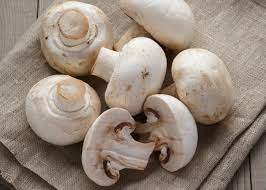Health Benefits of mushrooms
Mushrooms cleanse the blood by dissolving excess fat in the blood. This prevents high blood pressure and fatty blockages in the lining of blood vessels.
Vitamin D, which is not available in other vegetables, is abundant and easily available in mushrooms. Edible mushrooms are used as excellent food for taste and nutrition.
Mushrooms play an important role in protecting the heart. Potassium levels in the cells usually decrease when high blood pressure occurs. The sodium in the outer cells is equal to the potassium in the inner cells.
An increase in sodium externally during blood pressure changes the balance and decreases the amount of potassium in the epidermis. Thus altering the function of the heart. Potassium is needed to correct this condition. It is best to get them through food. Mushrooms are high in potassium.
100 g of mushrooms contain 447 mg of potassium. So mushrooms are the best food to protect the heart.
Mushrooms have also been found to contain copper. Copper repairs the damage done to the blood vessels. Mushrooms are an excellent remedy for people with arthritis. Cures infertility, ovarian diseases in women.
Daily consumption of mushroom soup has been found to prevent breast cancer in women.


